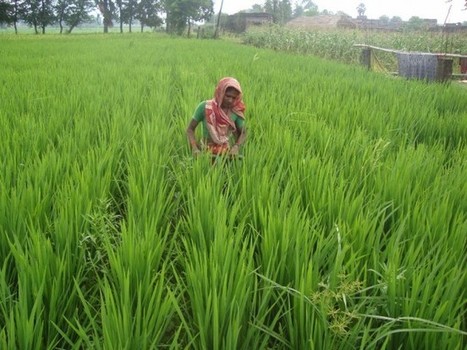An experiment was conducted during 3 consecutive rainy seasons at ICAR-Research Complex for Eastern Region, Patna to evaluate the mechanized weed management practices for enhancing the productivity in system of rice intensification (SRI) against farmers’ practice. The seven weed management treatments, viz. conoweeder thrice at 15, 25 and 35 DAT, conoweeder twice at 15 and 30 DAT, post-emergence (PoE) application of bispyribac-Na 25 g/ha (20 DAT) + conoweeder at 35 DAT, conoweeder 15 DAT + bispyribac-Na 25 g/ha (20 DAT), conoweeder on 15 DAT + bispyribac-Na 25 g/ha (20 DAT) + conoweeder 35 DAT, unweeded check and farmers’ practice were evaluated under randomized block design with three replications. Significantly the highest grain yield (5.97 t/ha) was obtained from 3 times conoweeder at 15, 25 and 35 DAT, which was at par with conoweeder twice on 15 and 30 DAT (5.40 t/ha).
Integration of herbicide with mechanical weeder did not improve the weed control efficiency and grain yield over conoweeder twice on 15 and 30 DAT. The highest weed control efficiency of 93.3 and 91.7% at 60 DAT were obtained with application of conoweeder thrice at 15, 25 and 35 DAT and conoweeder twice at 15 and 30 DAT, respectively. The crop raised by SRI method produced significantly higher grain and straw yields than that of farmers’ practice. However, in SRI, 2 times conoweeder at 15 and 30 DAT, was found to be effective and economical leading to cost saving for the farmers.



 Your new post is loading...
Your new post is loading...










https://www.livestockanimalexchange.com/en/product/toggenburg-goat-for-sale/